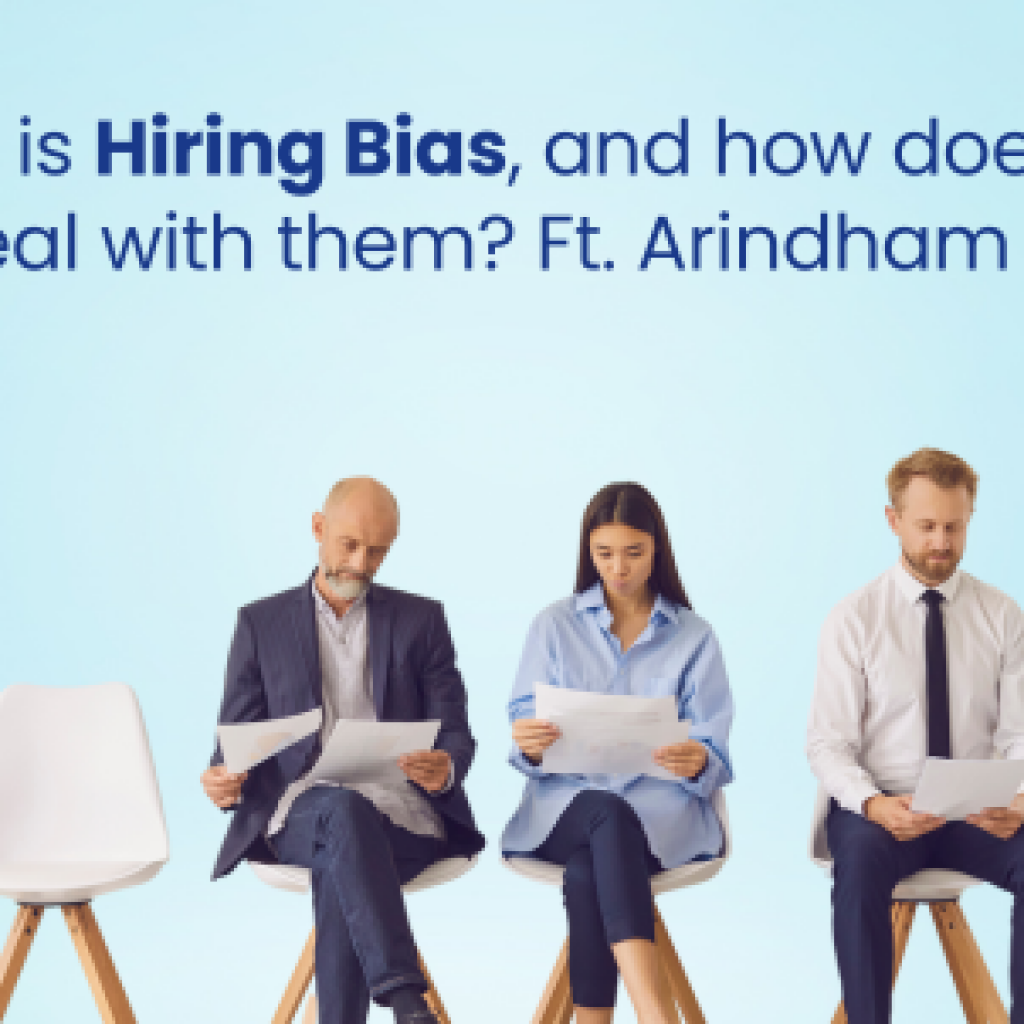From reducing drug discovery time to 46 days to cutting vehicle production costs by 20%, Gen AI is changing industry landscapes. Companies like Insilico Medicine and Tesla are leading this transformation, solving industry problems, optimizing supply chains, and enhancing autonomous vehicle technologies.
JPMorgan Chase reported a 30% increase in fraud detection accuracy thanks to AI algorithms in finance. Also, in the retail sector, AI-driven demand forecasting has reduced inventory costs by 15% while increasing sales by 10%.
Gen AI is revolutionizing industries, especially entertainment, by halving production times and costs while accelerating content creation. It enhances productivity across sectors by efficiently analyzing vast data, addressing inefficiencies, and driving innovation.
This article delves into ten pioneering early-stage Gen AI startups. These startups are advancing Gen AI technology and integrating it seamlessly into our everyday lives.
They have the potential to grow rapidly, are in a good market position, and will introduce game-changing AI technologies to the market in the next 2-3 years. This makes them a great option to partner, collaborate, or acquire.
Want to get a list of 200+ early-stage GenAI startups working in finance, cybersecurity, healthcare, legal tech, etc? Fill out the form to get the list:
1. Ocular AI (Business Automation)
| Founding Year | 2024 |
| Headquarters | United States |
| Total Funding Amount | $500K |
| Last Funding Round/Amount | Pre-Seed/$500K |
| Website | https://www.useocular.com/ |
Organizations ‘ information and knowledge bases are fragmented across multiple SaaS tools. This fragmentation often leads to reduced productivity and increased operational costs as employees spend excessive time searching for information, managing isolated tools, and coordinating workflows.
Ocular AI has developed a platform that integrates various company applications, data sources, and tools into a unified interface to solve this. Its key products include the Ocular Copilot and an advanced enterprise search system.
The Ocular Copilot is a generative AI-powered assistant that facilitates cross-tool workflows and actions. It allows users to create workspaces, upload files, and build usage-specific assistants for daily tasks.
The enterprise search system offers a permission-aware Google-like search interface, ensuring that organization members only see information relevant to their roles. This system enhances application usage visibility and helps make informed SaaS spending decisions.
Ocular AI’s technology consolidates diverse data sources and tools into a single platform, significantly improving search efficiency and workflow automation.
The Y Combinator-backed startup’s approach includes flexible deployment options, such as on-premise or cloud-hosted solutions, and deep integrations with third-party and in-house software.
Additionally, Ocular AI emphasizes security with features like end-to-end data encryption and SOC2 compliance, ensuring data privacy and control for enterprises.
Michael Moyo is the Co-Founder and CEO of Ocular AI. He leads the company by leveraging his extensive background in engineering and entrepreneurship.
Moyo holds two degrees from Dartmouth College, specializing in Computer Engineering and Biomedical Engineering. His professional journey includes working as a Software Engineer at Microsoft, based in Seattle/Redmond, WA, on the answers.microsoft.com platform.
Ocular AI is Michael’s fourth startup. He previously founded Ipahive Inc., a fintech company providing Banking as a Service (BaaS) focused on Africa, and Qurre Health, a health-tech startup centered on African markets.
Additionally, he established The MentalLiberty Foundation, a non-profit organization dedicated to improving mental health in Africa. This organization has impacted over 100,000 youths, and he is now the Founder and chair of The Board of Directors there. Michael is also an Ivy League graduate, angel investor, designer, and philanthropist.
Ocular raised its latest funding of $500K from a pre-seed round on 1 February 2024.
Related Read: Innovative AI Tools for Animal Health Diagnostics This Year!
2. STYRK AI (Cyber Security)
| Founding Year | 2024 |
| Headquarters | United States |
| Total Funding Amount | $1 Million |
| Last Funding Round/Amount | Pre-Seed/$1 Million |
| Website | https://styrk.ai/ |
AI models are still in the development phase and facing problems that include vulnerabilities to adversarial attacks, biases within AI systems, and the exposure of personal and sensitive data. To tackle these security and privacy challenges, STYRK AI has developed a suite of technologies and products named “Edna.”
This comprehensive solution includes tools for monitoring and mitigating AI model vulnerabilities, safeguarding against harmful content in large language models (LLMs), and masking sensitive data to ensure compliance with privacy regulations.

Edna helps manage adversarial attacks and examines, prevents, and safeguards LLM inputs and outputs from harmful content. It Analyzes LLM models to detect prompt injection and jailbreaking attempts and reviews outputs for biased or toxic statements.
Founder and CEO Anhad Singh leads the startup. Before starting STYRK, he was a senior privacy Engineer at Google for 3+ years.
He also worked with Dataguise (acquired in 2020) for 6+ years as Head of Technology and Partnerships, leading product design, software development, and product management. Ahnad holds a PhD in Computer Science from the University of California, Davis.
Styrk AI’s latest pre-seed funding round was on 01 May 2024 to secure $1 Million.
3. Anon (Developer Platforms)
| Founding Year | 2023 |
| Headquarters | United States |
| Total Funding Amount | $6.5 Million |
| Last Funding Round/Amount | Seed/$4.5 Million |
| Website | https://www.anon.com/ |
Traditional authentication methods often struggle with scalability and vulnerability to breaches, making developing more robust and adaptive solutions crucial. Modern AI systems have increased this complexity and security demands.
To address this, Anon has developed a software development kit (SDK) that allows developers to incorporate automated authentication with minimal code. This SDK is built on a zero-trust architecture, ensuring that credentials are controlled by the end-user rather than the service provider.
Additionally, it employs an advanced encryption layer that requires both the user and Anon to unlock, significantly enhancing security.
Traditional systems often centralize credential management, making them susceptible to single points of failure. In contrast, Anon’s decentralized credential control and dual-layer encryption offer a more secure and scalable alternative. This approach mitigates the risk of breaches and simplifies the implementation process for developers.
MultiOn, Personal.Ai, and Delphi are among the users of Anon’s technology.
Co-founder and CEO Daniel Mason leads this startup using his past entrepreneurial experiences. He co-founded Sabbatical Coworking and Elemetric, a startup-in-residence with IDEO’s CoLab, later backed by Techstars. It was a blockchain API layer startup.
Daniel was also part of the four-person founding team of Spring Labs, a successful fintech AI startup.
Anon raised its latest funding of $4.5 Million on 24 April 2024 in a seed funding round.
4. GenHealth.ai (Healthcare)
| Founding Year | 2023 |
| Headquarters | United States |
| Total Funding Amount | $13 Million |
| Last Funding Round/Amount | Seed/Publicly Not Disclosed |
| Website | https://genhealth.ai/ |
Traditional healthcare systems often struggle with manual, time-consuming tasks like prior authorizations, which delay patient care and increase administrative burdens.
Additionally, predicting patient outcomes and managing healthcare costs accurately are significant challenges due to the limitations of current data analytics tools.
The healthcare sector also lacks precise predictive tools and has complexities managing large-scale healthcare data.
To address these problems, GenHealth.ai developed the Large Medical Model (LMM), a generative AI system trained explicitly on over 140 million patient histories. It used medical event data rather than natural language.
This patent pending model, branded as DOOG-E, uses neural network transformers to predict future sequences of health events with high accuracy. Its VI model is trained on claims and clinical data from one million patients across Medicare, Medicaid, and commercial insurance.
The model leverages 70 million parameters and processes one billion tokens. Its primary data representations include ICD, CPT, RxNorm, and LOINC codes.
The technology reduces administrative tasks by 90%. It supports applications from automated prior authorizations to healthcare analytics. The LMM also integrates seamlessly with healthcare data standards like FHIR, HL7, and X12, enhancing its compatibility and utility across the healthcare ecosystem.
Co-founder and CEO Ricky Sahu, along with co-founders Eric Marriott and Ethan Siegel, are leading this startup. They are also part of 1upHealth, Inc., founded by Rick Sahu.
Ricky started his journey as a Program Manager with Google and worked there for 3 years. He worked in engineering roles with Promediacorp (2 years) and then CareJourney (3 Years) before starting 1upHealth in 2017.
Eric founded Kashurra and worked as a Bioinformatics/Software Engineer with Dana-Farber Cancer Institute for 2 years.
Ethan was also part of the Dana-Farber Cancer Institute for 2+ years as a software engineer and project lead. He founded Cambridge Healthcare AI before joining 1upHealth, Inc. as team lead and senior data engineer.
GenHealth raised its latest seed funding round on 02 April 2024.
Subscribe to Keep an eye on the latest innovations, trends, startups, and more.

5. Magic Hour (Entertainment)
| Founding Year | 2023 |
| Headquarters | United States |
| Total Funding Amount | 500 K |
| Last Funding Round/Amount | Pre-Seed/500 K |
| Website | https://magichour.ai |
Traditional video production can be time-consuming, complex, and expensive, especially for smaller creators and brands. Additionally, the need for localized content and dynamic visual storytelling often requires extensive resources that are not easily accessible to everyone.
To overcome these challenges, Magic Hour developed a suite of generative AI tools to streamline and democratize video creation. Key technologies include the Video-to-Video tool for style transfer, the Face Swap tool for creating high-quality deepfakes, and the Animation tool that transforms text and images into seamless video animations.
The startup’s Lip Sync technology ensures perfect audio-visual synchronization, enabling creators to localize content effortlessly. The Text-to-Video feature allows users to generate realistic videos from text inputs, enhancing creativity and reducing production time.
What sets Magic Hour apart from existing solutions is its focus on user-friendly interfaces and automation, which allow users to produce professional-quality content without specialized skills. The platform blends high-end open-source AI models with a simple user experience, significantly reducing the complexity and cost of video production.
The Y Combinator-backed startup’s tools enable creators to produce videos faster and more efficiently. They improve speed and quality and can save up to 70% of production time compared to traditional methods.
Runbo Li and David Hu are co-founders of Magic Hour. Runbo Li leads it as CEO, while David Hu handles CTO responsibilities.
Runbo has experience as a Senior Data Scientist with Meta. Before that, he worked for Compass Lexecon (Sr. Analyst) and Convoy Inc (Data Scientist). Runbo attended the University of Toronto for an MA in Economics.
David Hu was the lead full-stack engineer at Skillz Inc. for 6 years before founding Magic Hour. He holds a Bachelor’s in Chemical Engineering from the University of Pittsburgh.
Magic Hour raised its latest funding of 500K from a pre-seed funding round on 01 March 2024.
Related Read: How Artificial Intelligence Catalyzes Innovation in the Chemical Industry!
6. Tomato AI (Customer Service)
| Founding Year | 2022 |
| Headquarters | United States |
| Total Funding Amount | $12.1 Million |
| Last Funding Round/Amount | Seed/$2.1 Million |
| Website | https://tomato.ai/ |
Accents can create barriers to understanding and trust between agents and customers in call and customer care centers. Traditional methods like extensive agent training are time-consuming and often insufficient to overcome accent-related challenges completely.
Tomato AI has developed innovative AI-powered voice filters with Accent Softening and Noise Cancellation features to tackle this.
Its flagship product, the Accent Softening tool, uses proprietary AI models to reduce the prominence of accents in real time without entirely removing the speaker’s unique voice characteristics.
This integration, compatible with popular communication apps like Zoom and Microsoft Teams, enhances speech clarity, improving customer satisfaction and sales metrics. The Noise Cancellation tool employs generative AI to eliminate background noise, ensuring clear communication even in noisy environments.
Tomato AI maintains the speaker’s natural voice while improving understandability. It helps enhance offshore agents’ CSAT (Customer Satisfaction) and sales metrics.
Additionally, its use of advanced AI models, including transformer models and deep neural networks, allows for real-time application, providing immediate benefits compared to existing solutions.
Ofer Ronen is the Co-Founder and CEO of Tomato.ai and has an extensive background in AI and machine learning. He previously sold three tech startups, Chatbase and Pulse.io, to Google and Sendori to IAC.
Ronen spent seven years at Google within the Area 120 incubator, closing deals worth over $500 million. He is also with AI startups/companies like Anthropic, Lyft, Palantir, Instabase, etc., as an investor & advisor.
Ofer holds an MS in Computer Engineering focusing on AI from the University of Michigan and an MBA from Cornell University.
Tomato AI’s latest seed funding round was on 7 June 2024, for $2.1 Million.
Other startups like Lear AI, Dowork Technologies, and Gleen are creating and implementing sophisticated AI agents to make customer support more smooth.
7. ARQA (Finance)
| Founding Year | 2022 |
| Headquarters | United States |
| Total Funding Amount | $1.65 Million |
| Last Funding Round/Amount | Seed/$1.65 Million |
| Website | https://arqa.ai/ |
Financial advisors and institutions often struggle with the manual and time-consuming processes required to handle large volumes of client data. Diverse and extensive financial data make providing timely and personalized financial advice difficult.
To solve these problems, ARQA has developed its AI Platform, featuring technologies such as KorScript and ARQA AI.
KorScript uses generative AI to transform financial documents into structured, actionable data in real-time, significantly reducing the time and effort needed to extract precise financial information.
The ARQA AI is a versatile platform that allows financial advisors to scan client portfolios and effortlessly uncover key insights. It is data-agnostic, meaning it can adapt to various data sources, enhancing advisory capabilities with intuitive engagement and intelligent analysis.
It has processed over $50 billion in assets, spans 60 major markets worldwide, and integrates data from over 15,000 partners.
Haik Sahakyan is the Co-Founder and CEO of ARQA. He also serves as Principal at Blackmar, a consulting firm he founded in February 2017. The firm specializes in consulting and implementing analytics and performance reporting platforms for the asset management sector. Haik is also an advisor at GlengarryAI.
His career includes significant contributions to the fintech industry, including co-founding Kosmos (formerly Blackmar Technologies) in 2018. Before its acquisition, the company developed integrated financial tools for high-net-worth individuals and family offices.
Earlier, he was also part of the Client Solutions team at Addepar, leading implementations and client engagement efforts. Haik is recognized for his expertise in creating enhanced financial tools and platforms.
ARQA secured $6 Million from its latest seed funding round on 18 August 2022.
Reach out to our experts to know more about other startups solving Finance Industry Problems by creating Gen AIs:

8. Inspira AI (Legal Tech)
| Founding Year | 2021 |
| Headquarters | Brazil |
| Total Funding Amount | Publicly Not Disclosed |
| Last Funding Round/Amount | Pre-Seed |
| Website | https://inspira-ai.com/en |
Inspira AI is a prominent legal tech startup based in Brazil that leverages artificial intelligence to streamline legal processes. The company has developed a platform for legal research, document analysis, and knowledge management.
The AI-driven platform is designed to enhance productivity and reduce the time lawyers spend on repetitive tasks, such as case law research and report generation.
Inspira AI has achieved significant recognition, becoming the first Latin American startup and legal tech company to win the PITCH competition at the Web Summit in 2023. This prestigious event featured over 2,600 startups from around the globe, with Inspira emerging as the winner among 105 finalists.
The platform is known for its comprehensive national coverage. It offers daily updates from 23 judicial courts and 15 administrative courts and handles over 30 million documents.
Cauê Rodrigues Amaral, Henrique Ferreira, and Rafael Grimaldi are the co-founders of this startup. Cauê and Henrique are experienced lawyers, while Rafael has skills in the digital side of Law.
The latest pre-seed funding round raised by Inspira was on 01 October 2021.
9. Nextnet (BioTech)
| Founding Year | 2020 |
| Headquarters | United States |
| Total Funding Amount | $1.3 Million |
| Last Funding Round/Amount | Seed/$1.3 Million |
| Website | https://getnextnet.com/ |
Researchers are overwhelmed by the exponential growth of data, including scientific literature, molecular data, clinical trials, patents, and more. The difficulty lies in accessing and integrating this scattered information, which is crucial for accelerating drug discovery and development processes.
To tackle these problems, Nextnet has developed a cloud-based platform utilizing its proprietary Generative AI technology. This platform, known for its powerful Large Language Models (LLMs), integrates and contextualizes diverse biomedical data into a comprehensive semantic web.
The platform features Relational and Conceptual Search, allowing researchers to conduct semantic searches using natural language.
This approach significantly reduces the time needed to identify relevant information and generate hypotheses. Key specifications include the ability to analyze multi-modal data sources, including gene sequencing, protein expression, and biomedical publications, and providing a no-code user interface for easy data access.
Nextnet’s platform connects textual data with molecular and clinical databases, uncovering hidden associations and patterns. This capability accelerates the discovery process and enhances decision-making in drug development.
Founder and CEO Steven Banerjee leads this company with his enterprise experience. He is also the founder of Mekonos, a Silicon Valley-based biotechnology platform company.
Steven is a fellow of On Deck or ODF, which has helped more than 1,000 startups launch, including NextNet, and has raised more than $2 Billion. He also worked as an Advisor at Lumen Energy for 3+ years.
His Alma mater includes Stanford University, the University of Canterbury, and the University of California, Berkeley.
Nextnet raised its latest funding of $1.3 Million on 31 May 2023 from a seed round.
Related Read: 4 AI-assisted Healthcare Innovators to Watch This Year!
10. CircKit (Fashion Supply Chain Management)
| Founding Year | 2019 |
| Headquarters | United Kingdom |
| Total Funding Amount | $2.5 Million |
| Last Funding Round/Amount | Seed/$1.7 Million |
| Website | https://circkit.com/ |
The environmental impact of production, inefficient design processes, and the need for sustainable lifecycle management are critical issues in the fashion industry. The industry is often criticized for its significant carbon footprint, waste generation, and unsustainable practices.
These challenges include overproduction, excess inventory, and lack of transparency in the supply chain, which lead to significant environmental degradation and financial losses.
To tackle these problems, CircKit developed an AI-powered platform that includes the CircKit AI system and the CircKit Simulate™ suite. The CircKit AI system automates Life Cycle Assessments (LCAs) and generates Circular Economy Indicators (CEIs) with high accuracy. It significantly reduces the time and cost involved in manual assessments.

CircKit Simulate™ helps designers refine their products by comparing the impacts of various materials, durability, and design choices. It facilitates the creation of sustainable and circular products from the outset.
The startup also offers a unified B2B and B2C solution that streamlines the supply chain from sourcing to sales. CircKit Source™ is a B2B-approved supplier directory that helps small and large brands identify and source sustainable raw materials, fabrics, and production services. This platform supports access to upcycled, recycled, and bio-materials, promoting sustainable choices.
On the sales front, CircKit partners with Veo.world. Europe’s leading sustainable lifestyle marketplace allows brands to reach conscious consumers and connect with a market that values ethically sourced, high-quality products.
CircKit’s technology helps integrate sustainability into every stage of the product lifecycle. This integration results in a more efficient design process, reducing environmental impact and enhancing the sustainability of fashion products by up to 40%.
The startup is part of the Ellen MacArthur Foundation, a charity renowned for supporting the circular economy. It is also a B-certified corporation.
CircKit raised its latest seed funding round for $1.7 Million on 1 February 2024.
Partner with early-stage innovative Gen AI startups working on your industry’s toughest challenges and stay ahead of the competition.
Reach out to find similar ventures that perfectly fit your needs.

Author: Naveen Kumar, Marketing
Read Next: 5 Startups To Watch for AI And Machine Learning In Logistics!










